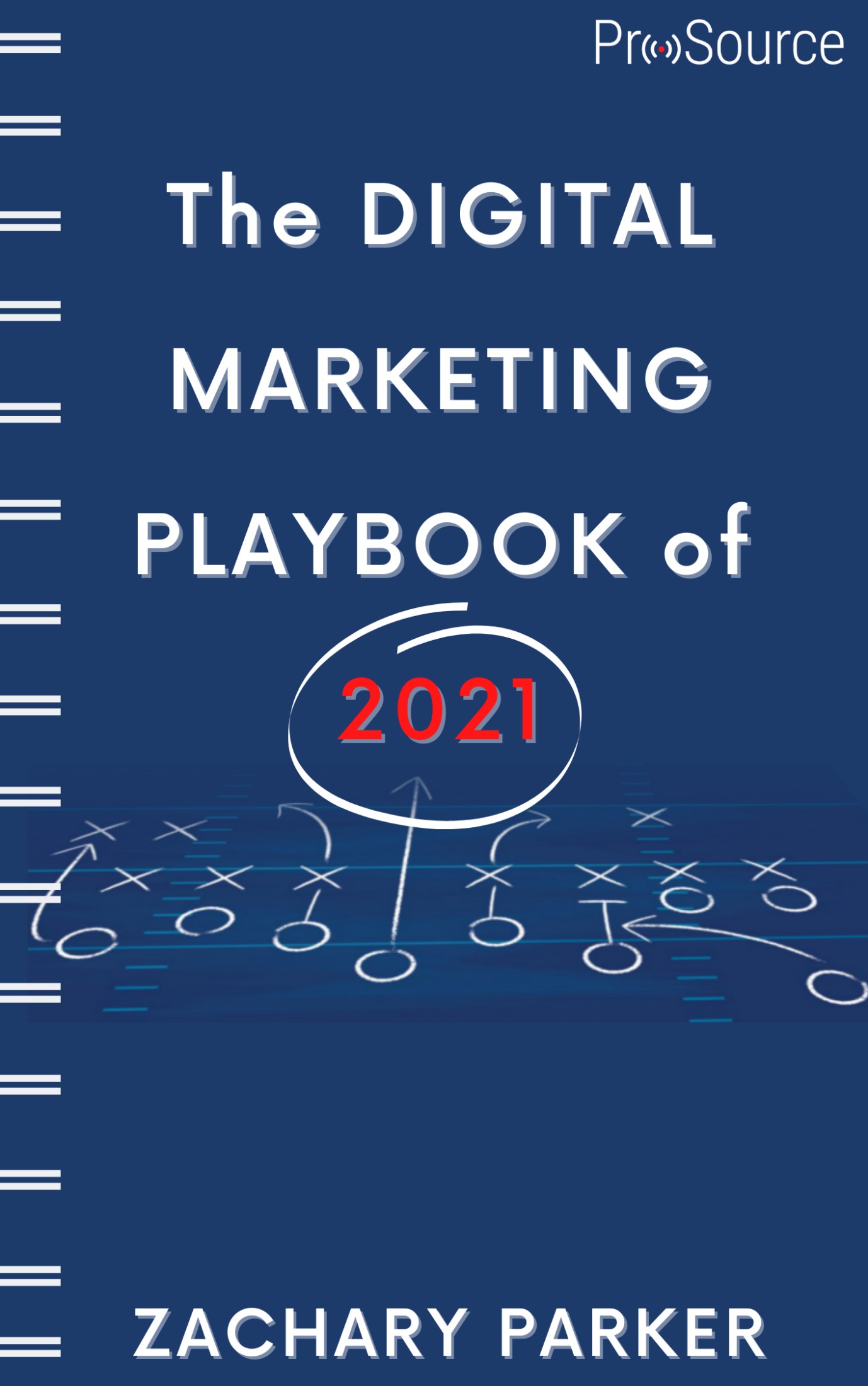6 Reasons Your Not on Page 1

Why Am I Not on Page 1!?
This is one of the most common questions business owners ask their SEO company. That question is as complex as Google’s algorithm, and it is never an easy one to answer. Your organic rank is influenced by many elements that exist both on your website and off of it. Technical website setup, keyword strategy and domain authority are all things to consider when evaluating rank.
While your reason will vary depending on your circumstance, there are 6 very common website issues that will prevent you from gaining access to Google’s coveted first page, and all the fresh organic leads that come with it. Here they are:
1. Your Keywords Are Nowhere
Your keyword strategy will make or break your overarching SEO goals. When I do get asked ‘Why I’m Not on Page 1’, the only way I can provide an answer is if I know which keyword they’re referring to. If they don’t know which keyword, they are most likely in this category, and I immediately go into Keyword Research mode.
While Google has become incredibly adept at figuring out what your website is about, they still only have a few website elements that will ultimately help them determine what keywords you will rank for. You need to make sure your target keywords are in all of these places on your website if you want to rank for those keywords:
- SEO Title & Meta Description
- Main Heading on Page h1
- Page slug/URL
- First Content Paragraph
- 2-3 times for every 300 words of copy
- Image URLs
- Image alt tags, captions, and descriptions
So if you know what your target keywords are, make sure they appear in all of those places on the webpages you want to rank for those keywords. If you don’t know what your target keywords are, utilize tools like Google Ads Keyword Planner, SEMRush, Ahrefs, and Moz.
*Important to note*: Do not optimize more than 1 page for 1 keyword. If you do, you’ll fall into the next category:
2. Your Keywords are Everywhere
On the opposite side of the spectrum, I’ll find in many cases that a site has been over-optimized for target keywords. Your goal is not to get your keyword into as many pages as possible on your website, your goal is to optimize 1 page for a particular targeted keyword.
If you have more than 1 page optimized for a target keyword, you’ll run into a fairly common SEO issue known as keyword cannabilization. This is when you have 2 pages from 1 website actually competing against one another for a particular keyword in Google’s search result pages. What you’ll end up with in most cases is 2 poorly ranked pages instead of 1 strongly ranked page for that target keyword.
This doesn’t mean your target keyword can’t appear on any other pages on your website. In fact, you should build supporting content around that keyword because it will establish topical authority for your domain in the eyes of Google. When you do use your target keyword on other pages, be sure to link the keyword text over to your target page to avoid any keyword cannabilization issues.
Also be wary of Keyword Stuffing. Google has been very clear about this from the beginning, they don’t like it and neither do users. Avoid a keyword density of more than 3%. Keyword density is the total number of times your keyword appears on a web pages divided by the total number of words on that page. YoastSEO is a great free WordPress plugin that will automatically calculate this metric for you for every page on your site.
3. Your Domain is Too Young
Domain age is and always has been an important ranking factor. If your website is less than a year old, it will be difficult to gain admittance to Page 1 of Google, unless your trying to sell sun tan lotion in Alaska. While a search for your brand name or company name should show you on Page 1 in your first year, a search for your target keyword may not yield any meaningful traffic for a while if your in a competitive space.
Why is that? In Google’s eyes it comes down to one thing: user experience. A domain that has been around a while has history with Google. They’ve crawled it many times and they’ve determined already whether or not it’s a reliable site. For newer sites, they don’t have this experience to lean on, so they are hesitant to send loads of traffic to it until they prove their reliability.
To gain that trust with Google, be sure your actively building links from the day you launch your site, and don’t get hacked.
4. You’ve Got No Reputation In Google
If you’ve read about SEO you probably know that link building is one of the critical rank factors in Google’s search algorithm. The summation of your backlinks is what Google utilizes to evaluate your credibility in your space. If you have no backlinks, you have no street cred with Google, and you may as well be a brand new site in their eyes.
Make sure you have all of your online social media pages built and optimized for your brand and keywords. Make sure your in all the major online directories with consistency in your Business Name, Address, Phone Number and Website. Find local or industry websites that will allow you to build a profile page and post content that will link to your site. This is how credibility is established with Google.
5. You’ve Got A Bad Rep In Google
What if you have a ton of backlinks, but they are from spammy websites? Well, you’ll certainly have a reputation with Google, but it will be a bad one. Google has gotten very good over the years assessing the quality of a backlink, and if you’ve ever partaken in black hat link building in the past, this could be an issue affecting your site.
Luckily, Google is very forgiving of those with bad reputations in most cases, even forgetful. Using tools like ahrefs, Moz, and Google Search Console you can easily compile a list of all of your site’s backlinks to help root out bad actors. Using Google Search Console, you can upload a list of URLs or domains that you’d like to disavow, which will essentially remove those domains from your backlink profile in the eyes of Google.
6. Your Site is Whack
Even if your website is optimized perfectly for your target keyword and you have loads of great backlinks from authoritative sources, you will fail to gain traction in Google if the website itself is of poor quality. For anyone who believes that user experience isn’t a ranking factor, go ahead and shut your website down and see how long it takes Google to remove you from their index. (*hint: they’ll de-index your site as soon as they recrawl it and see that it’s down).
To get in Google’s good graces, your site pages should all be good MFERS.
- Mobile Friendly – If your mobile version stinks, you will receive very little mobile traffic. Considering mobile web users now exceed desktop users, this should be a point of focus if it hasn’t been already.
- Fast – Your website has to be under 2 seconds in the important speed metric ‘First to Paint’, which is how long it takes for the visual elements of the page to load.
- Engaging – You have to retain your organic users on your website. Keep an eye on Bounce Rate, Avg. Time/Session, and Pages/Session in Google Analytics. While your benchmarks for these metrics will vary widely by business type, you should set your goals relative to your competitors and what is considered acceptable in your industry.
- Reliable – You need to shoot for 99.9% uptime (the percentage of time that the website is up and accessible over a period of time)
- Secure – As soon as Google detects hacked content on a website, that site is immediately de-indexed and the site owner is notified by Google via Google Search Console that they need to address the issue.
Hopefully this list was helpful in understanding some critical website factors that could be holding back your SEO. The good news is that none of these issues are irreparable, and with good SEO there’s nothing on this list that can’t be fixed. For more info and to get a no obligation SEO assessment for your website, fill out the Free SEO Analysis form here. We’ll send you some personalized SEO recommendations and actionable tips on how you can improve your specific domain!

